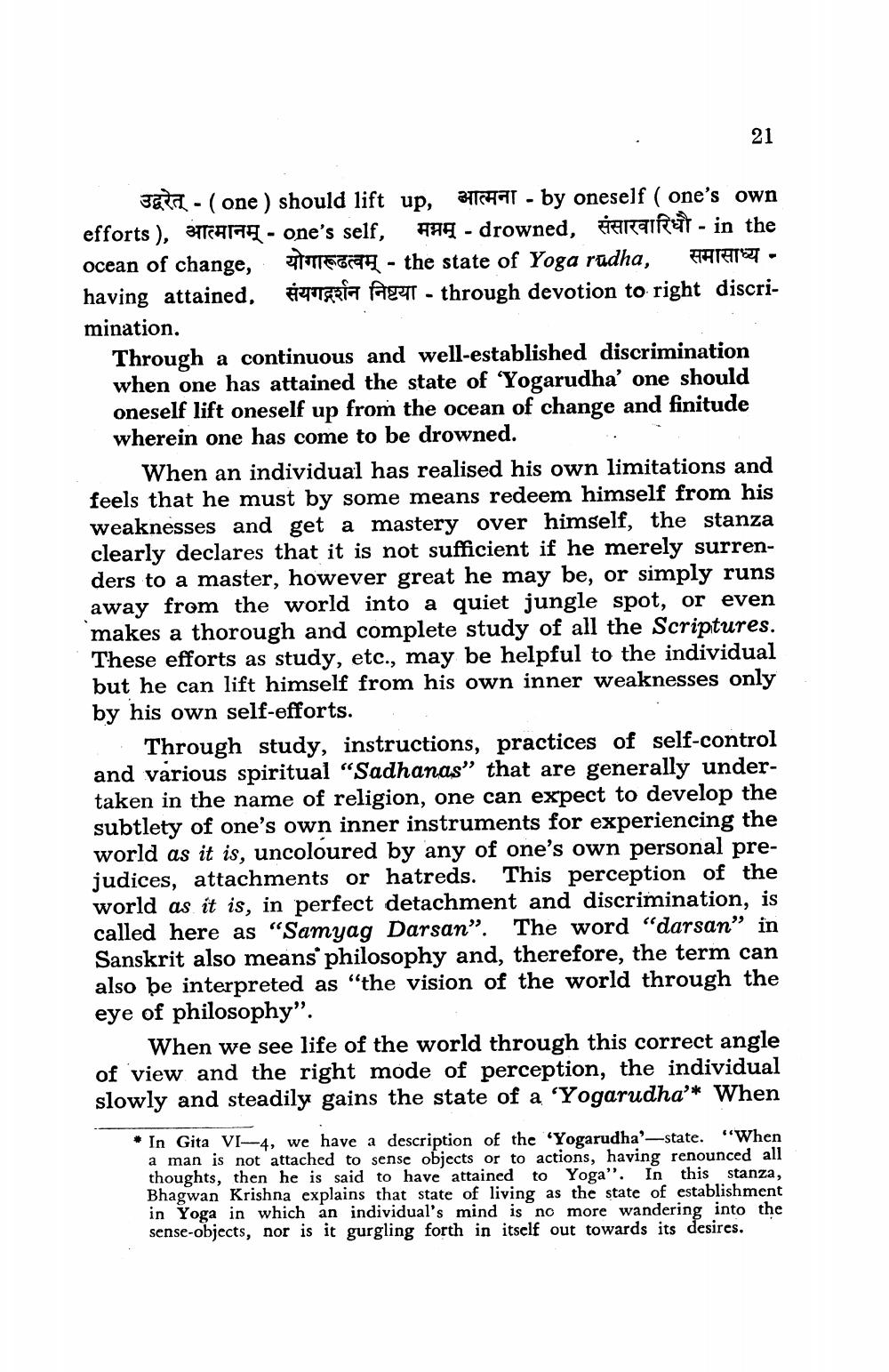________________
21
SET - (one ) should lift up, HTHAL - by oneself ( one's own efforts ), आत्मानम् - one's self, मग्नम् - drowned, संसारवारिधी - in the ocean of change, योगारूढत्वम् - the state of Yoga rudha, समासाध्य • having attained, ÅTTERIA FETT - through devotion to right discrimination.
Through a continuous and well-established discrimination when one has attained the state of Yogarudha' one should oneself lift oneself up from the ocean of change and finitude wherein one has come to be drowned.
When an individual has realised his own limitations and feels that he must by some means redeem himself from his weaknesses and get a mastery over himself, the stanza clearly declares that it is not sufficient if he merely surrenders to a master, however great he may be, or simply runs away from the world into a quiet jungle spot, or even makes a thorough and complete study of all the Scriptures.
These efforts as study, etc., may be helpful to the individual but he can lift himself from his own inner weaknesses only by his own self-efforts.
• Through study, instructions, practices of self-control and various spiritual "Sadhanas" that are generally undertaken in the name of religion, one can expect to develop the subtlety of one's own inner instruments for experiencing the world as it is, uncoloured by any of one's own personal prejudices, attachments or hatreds. This perception of the world as it is, in perfect detachment and discrimination, is called here as "Samyag Darsan". The word "darsan" in Sanskrit also means philosophy and, therefore, the term can also be interpreted as "the vision of the world through the eye of philosophy".
When we see life of the world through this correct angle of view and the right mode of perception, the individual slowly and steadily gains the state of a 'Yogarudha'* When
lesonhy"
* In Gita VI-4, we have a description of the "Yogarudha'-state. "When
a man is not attached to sense objects or to actions, having renounced all thoughts, then he is said to have attained to Yoga". In this stanza, Bhagwan Krishna explains that state of living as the state of establishment in Yoga in which an individual's mind is no more wandering into the sense-objects, nor is it gurgling forth in itself out towards its desires.




